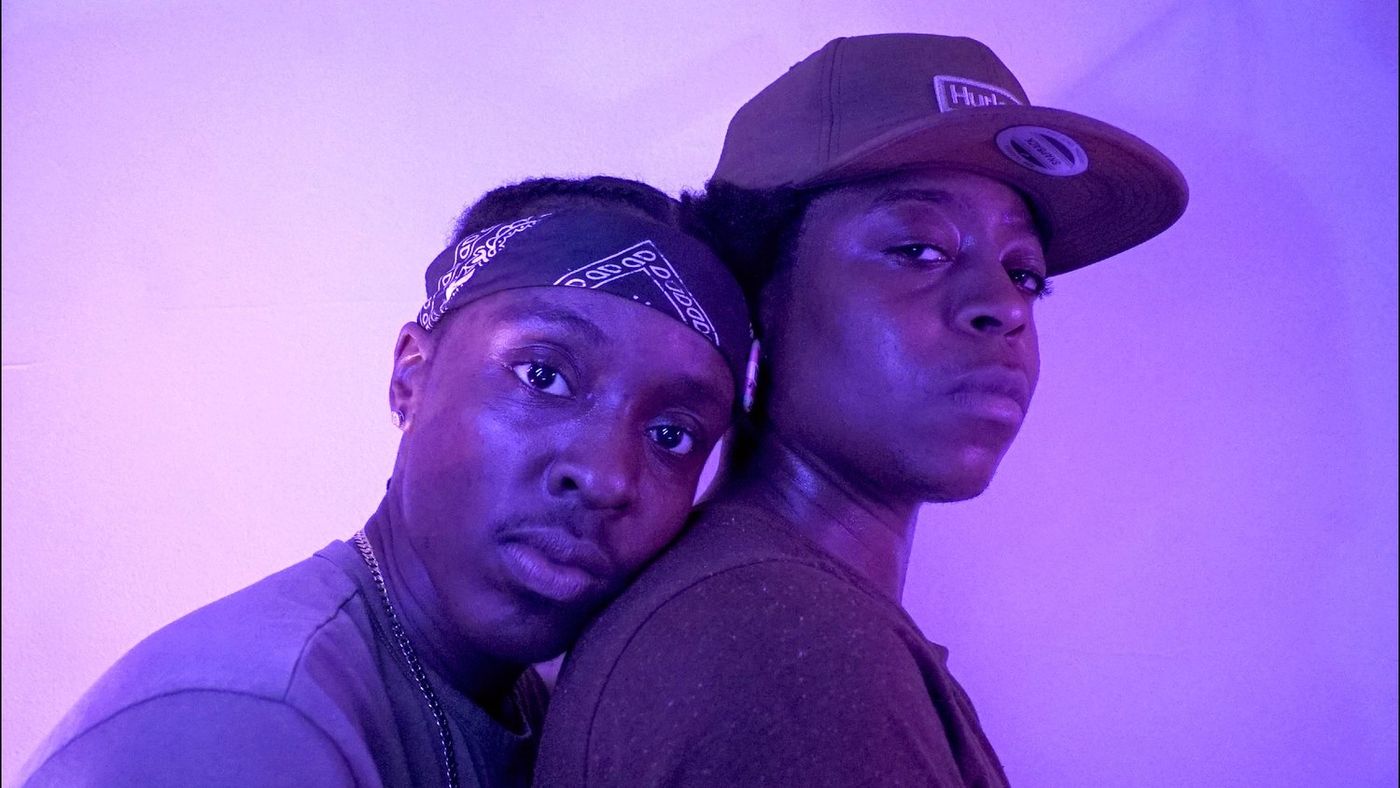Review: In a nightclub setting, MESSIAH pulsates with thoughts about LGBTQ youth in the African American community

When you enter the downstairs space at La Mama, multi-colored fluorescent lights illuminate a multi-level stage. Asked to enter the theater in twos, your first stop is a few steps up to a level. If you so choose, you can go inside the curtain to speak with the great ancestors. The play Messiah has big ambitions, a title which promises significance and a downtown sensibility right from the start.
The jam packed story arc begins in March 1968. FBI Director Hoover was quoted as saying that the Black Panthers were "one of the greatest threats to the nation's internal security." This play has a viewpoint. Hoover is trying to neutralize black militant groups to prevent the rise of the Messiah.
In a nightclub, a disc jockey begins scratching. "The scratch" functions not only to set a time and a place but also to represent distance. Between music and time. Between Africa and America. Even between beats and silence. "Scratch" and it's 1996. Mom offers her child encouragement: "don't ever stop rapping."
Now a DJ named Messiah, the plot swirls around stylistically and melodramatically. Messiah deals with queer and trans people struggling within the "legacies of sexism and homophobia" of black nationalism. The Star Land strip club is also a setting where a gorgeous trans performer finds an unlikely admirer, the absentee father of Messiah.
The melodrama and plot contrivances multiply. Lines such as "I can't go through with this" and "I can't watch someone else die" are commonplace. Some intensely poetic word imagery, however, is very effective: "I can still smell the blood on the concrete."
Crack cocaine has begun to devastate the community and Star Land is not immune as its ladies become ghosts. The spirits of the ancestors are represented on stage by two women. The play frequently stops to underscore how this community came to be so damaged. The CIA was behind the contras who were "sending crack to the hoods." This particular controversy was real news and is used as another example of how the system represses and continues to enslave.
Writer and Director Nia O. Witherspoon definitely has a ton of topics to address about the African American and LGBTQ experience. She confronts not only oppression from outside but also the internal problems within the community itself. The range of subjects is exhaustively comprehensive. Topics covered in this play include single moms, transvestites, drugs, capitalism, gender issues, police brutality, rap music expressionism, alcoholism, prostitution and more.
Messiah does need an edit. The first act is a long 1:45. This soap opera eventually pulls together the plot strings connecting these characters in the second act. There are many inspired sections that feel angry and instructive. The Black Panthers tell their story about bravery but the young people are "calling bullshit on that." To his absentee father he says, "you think you're a revolutionary - well you ain't - you're f-ing pathetic."
A strong cast brings this vision to pulsating life. The dual roles of Messiah and Malika add depth to the character's journey, each aware of the importance of the other. Painful lessons are learned. None perhaps more damning than this nugget: "we all have the white man's religion inside us."
Messiah offers up plenty to think about and is a nice start to La Mama's month long programming reflecting on the 50th anniversary of the Stonewall riots. I expect everyone's personal frame of reference will shade their engagement with this material. In her play, Ms. Witherspoon addresses the past to spark a future which shifts reality "towards creativity, justice and freedom." That's a tall order. Traveling across a few less lanes might tighten (and shorten) this unique and inspirational theatrical event.
Reader Reviews
Videos

